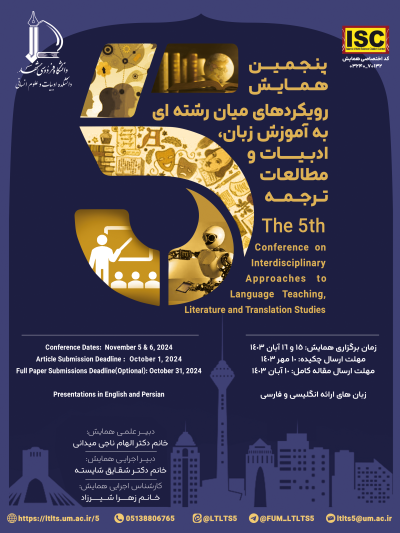0% Complete

نویسندگان :
کلمات کلیدی :
چکیده :
لیست مقالات بایگانی شده
Saeedeh Mansouri - Saeed Safdari
Ali Arjmandi Arjmandi Nahand - Samar Ehteshami
نازنین قراِِئی نژاد - بهروز محمودی بختیاری - مریم سلطان بیاد
فاطمه صحرایی سرمزده - روشنک آذری
Seyed Mehdi Mousavian - Hamideh Nemati Lafmejani

